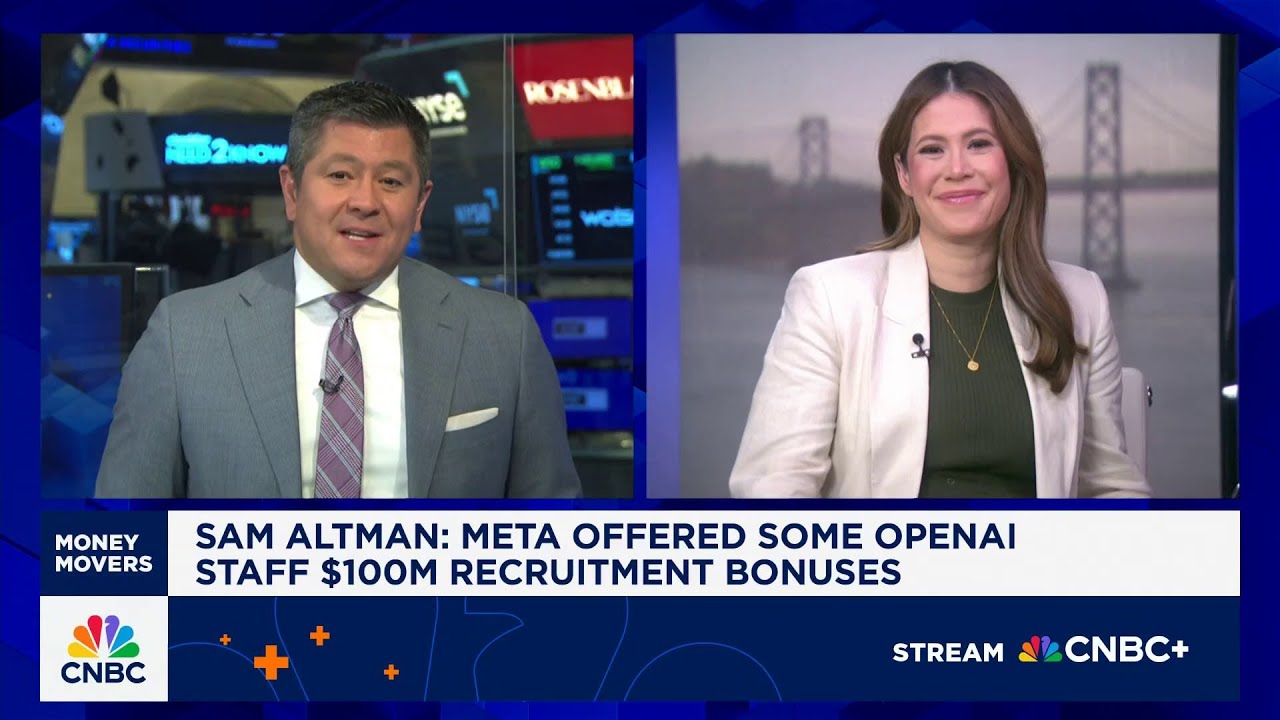OpenAI CEO Sam Altman revealed that Meta offered massive financial incentives, including $100 million signing bonuses, to poach OpenAI’s top AI talent, but none accepted, highlighting OpenAI’s mission-driven culture and competitive edge in the AI race. The video also discusses the intense competition for elite AI talent, the resulting high-pressure work environments, and calls from leaders like Databricks CEO Ali Ghodsi for a more sustainable, long-term approach to innovation in the industry.
OpenAI CEO Sam Altman has publicly accused Meta, led by Mark Zuckerberg, of attempting to poach OpenAI’s top AI engineers by offering massive financial incentives, including what Altman described as $100 million signing bonuses. Altman claims that despite these lucrative offers, none of OpenAI’s best talent accepted Meta’s deals. This move by Altman appears to be a strategic effort to raise the compensation benchmark publicly, challenge Meta to match these offers, and discourage OpenAI employees from leaving by highlighting the high value placed on their skills.
Altman also emphasized OpenAI’s mission-driven culture, positioning the company as having the best chance to develop superintelligence and ultimately become more valuable than its competitors. He contrasts OpenAI’s innovation-led, purpose-first approach with the broader big tech environment, suggesting that OpenAI’s cultural and strategic focus gives it a competitive edge in the AI race. This framing aims to attract and retain talent who are motivated not just by money but by the company’s long-term vision and impact.
The competition for elite AI talent is intensifying, with compensation packages reaching unprecedented levels, sometimes into six-figure sums or even higher. However, this talent war is also accompanied by reports of burnout and a demanding work culture characterized by seven-day workweeks, constant pressure to innovate, and relentless benchmarking. These conditions are affecting both startups and established tech giants, raising concerns about the sustainability of such a high-pressure environment.
In contrast to the high-stress culture prevalent in many AI companies, some leaders like Databricks CEO Ali Ghodsi advocate for a more sustainable approach to the AI talent race. Ghodsi stresses the importance of pacing work to avoid burnout, emphasizing that the AI race is a long-term endeavor that requires maintaining productivity and creativity over many years rather than short bursts of intense effort. This perspective highlights the need for balance and sustainability in the fast-evolving AI industry.
The video also touches on notable examples of talent movement within the AI sector, including founders who left big tech to start their own ventures but later returned to major companies. It mentions Meta’s significant financial investments to attract top AI executives, such as Alexander Wang, and references OpenAI’s own high-profile hires, like Jony Ive. These examples underscore the fierce competition and high stakes involved in securing leadership and expertise in the rapidly advancing field of artificial intelligence.
